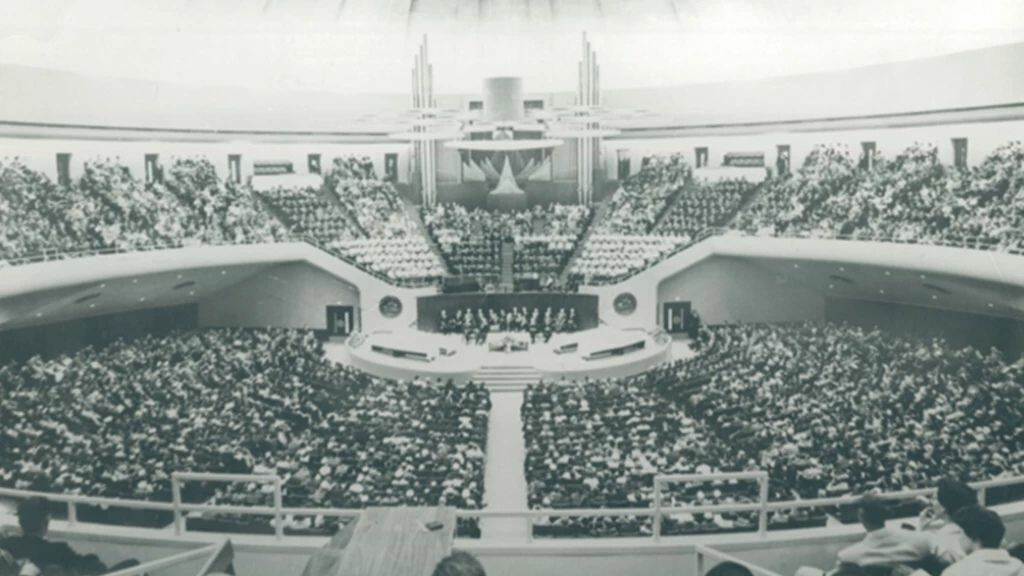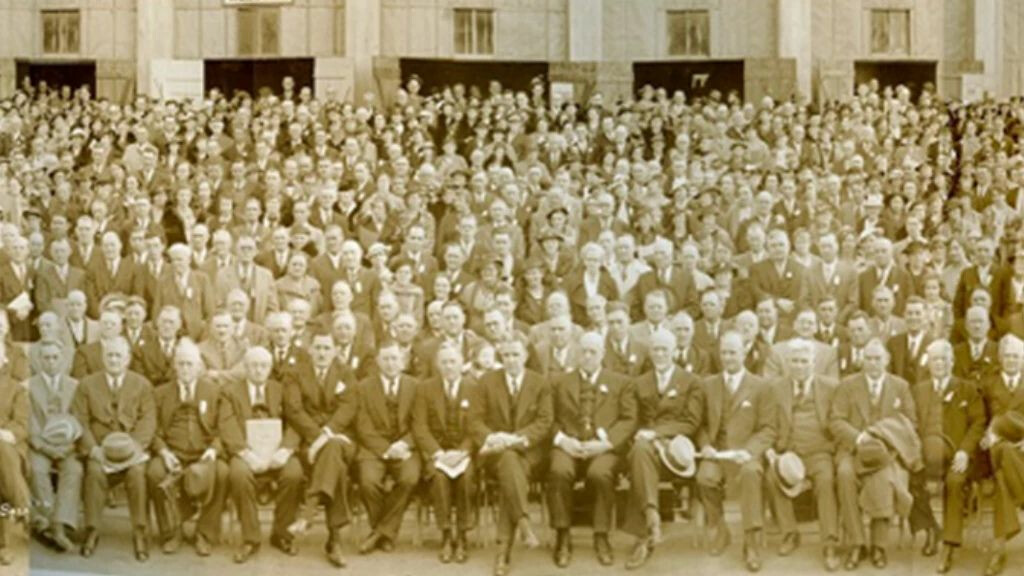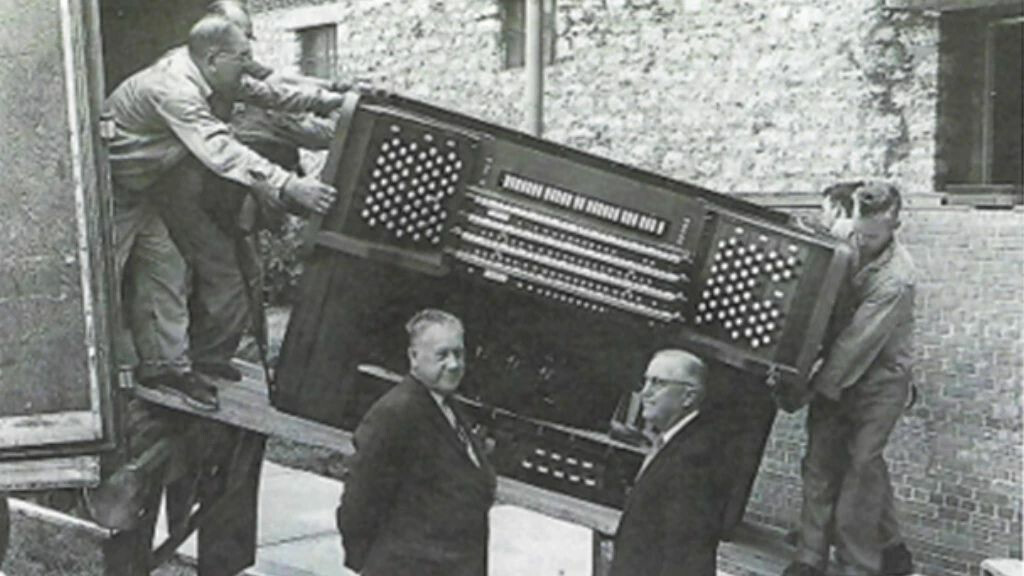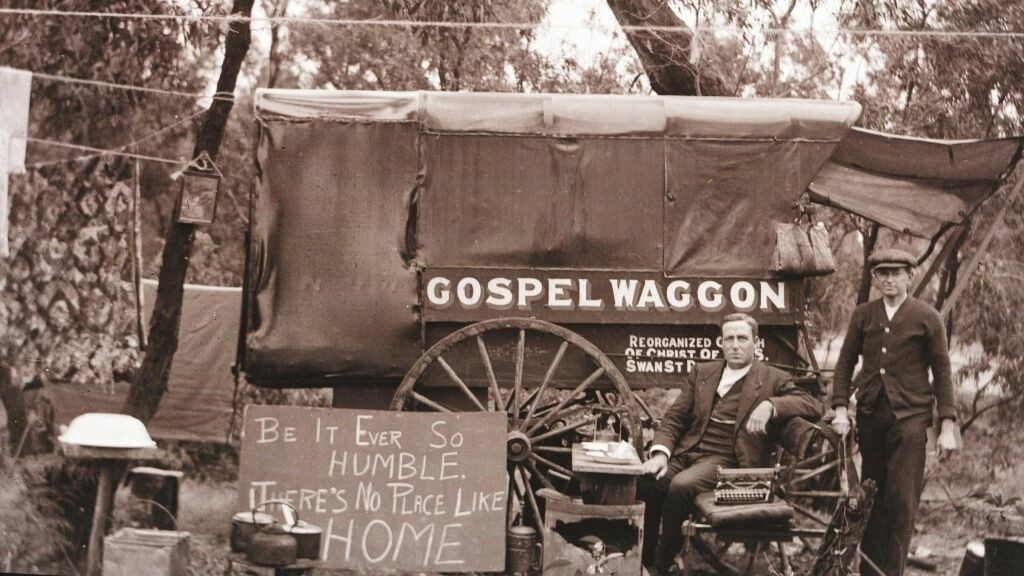Guiding Principles in Restoration History
Perspectives on Church History
By President Stephen M. Veazey
The gavel Joseph Smith III used to preside over conferences of the Reorganization sits atop a credenza in my office at the Temple. I do not own it; it belongs to the church.
Occasionally, while mulling over thorny church issues, I walk over and pick up the gavel, respectfully examining its slightly cracked ivory head and beautifully carved wood handle. Cradling it in my hands, I feel that I have some tangible connection to the past. Thus engaged, my mind wanders back through time to ponder the personalities, events, and circumstances that shaped today’s church. Although I have read many church history books, I always want to know more about my religious ancestors and the historical contexts in which they expressed their faith.
While I was much more than casually aware of church history previously, since becoming president of the church I have engaged in an extensive study of our story. I have explored books and articles from a wide spectrum of scholars, authors, and publishers, ranging from the faithful to the skeptical and in between. Truth has nothing to fear from scrutiny.
During recent decades there has been a mounting wave of added information as religious historians have gained access to more source material and have written with increasing frankness about various topics. Also, in the past few years, the media spotlight—including several high-profile television series—has been turned on to Latter Day Saint history because of the Mitt Romney campaign for the U.S. Presidency and the disturbing activities of LDS fundamentalist groups.
Because of my exploration of various credible works, and probing discussions with historians, some of my previously held notions have been challenged and adjusted in the face of additional knowledge. The “apologetic” approach to church history—presenting our story in as favorable a light as possible—is not sufficient for the journey ahead. That approach does not evidence the integrity that must be fundamental to our witness and ministry.
While I have adjusted some personal perspectives, I have mainly found a deeper understanding of the many complex, interrelated factors that shaped the church over the years. I have come to see more clearly how God’s Spirit worked in the lives of imperfect, but highly dedicated people to shape a faith movement that continues to play a vital role in God’s unfolding purposes today. As a result, I have gained even greater confidence that the same Spirit that saw the church through seemingly insurmountable challenges in the past will continue to sustain and guide us in the future.
As the First Presidency has joined with others in exploring issues emerging from the ongoing study of Restoration history, we decided it would be timely to provide a set of “Church History Principles” to help guide the church’s reflections and discussions. These principles have been distilled from the insights of past and present World Church leaders, church historians, theologians, and others. We hope the statements will prove useful as the church continues to explore the personalities, events, and meanings of our church’s colorful, inspiring story.
Church History Principles
Continuing Exploration
Continuing exploration of our history is part of identity formation. As a church we seek always to clarify our identity, message, and mission. In our faith story, we see clearly God’s Spirit giving this faith community tools, insights, and experiences for divine purposes. A people with a shared memory of their past, and an informed understanding of its meaning, are better prepared to chart their way into the future.
History Informs
History informs but does not dictate our faith and beliefs. The foundation and continuing source for our faith is God’s revelation in Jesus Christ. Studying history is not about proving or disproving mystical, spiritual, or revelatory experiences that birth or transform religious movements. Sound history informs faith, and healthy faith leads to insights about history. Theology and faith, guided by the Holy Spirit, must play an important role in discovering the enduring meaning of such events as well as the deeper truths found in them. Our understanding of our history affects our faith and beliefs. However, our past does not limit our faith and beliefs to what they were historically.
Honest, Responsible Historical Scholarship
The church encourages honest, responsible historical scholarship. Studying history involves related fields. Historians use academic research to get as many facts as they can; then, they interpret those facts to construct as clear a picture as possible of what was going on in the past. This includes analyzing human culture to see how it affected events. Historians try to understand patterns of meaning to interpret what the past means for our future. This process should avoid “presentism,” or interpreting the past based on a current worldview and culture instead of the culture of the time.


Unfolding Journey
The study of church history is a continuing journey. If we say that a book on history is the only true telling of the story, we risk “canonizing” one version, a tendency we have shown in the past. This blocks further insights from continuing research. Good historical inquiry understands that conclusions are open to correction as new understanding and information comes from ongoing study.
Faithfulness and Human Flaws
Seeing both the faithfulness and human flaws in our history makes it more believable and realistic, not less. Our history has stories of great faith and courage that inspire us. Our history also includes human leaders who said and did things that can be shocking to us from our current perspective and culture. Historians try not to judge—instead, they try to understand by learning as much as possible about the context and the meaning of those words and actions at the time. The result is empathy instead of judgment. Our scriptures are consistent in pointing out that God, through grace, uses imperfect people for needed ministry and leadership.
Learning, Repentance, and Transformation
The responsible study of church history involves learning, repentance, and transformation. A church with a mission focused on promoting communities of reconciliation, justice, and peace should be self-critical and honest about its history. It is important for us to confess when we have been less than what the gospel of Jesus Christ calls us to be. This honesty prompts us to repent, and it strengthens our integrity. Admitting past mistakes helps us avoid repeating them and frees us from the influences of past injustices and violence in our history. We must be humble and willing to repent, individually and as a community, to contribute as fully as possible to restoring God’s shalom on earth.


Drawing Our Own Conclusions
The church has a long-standing tradition that it does not legislate or mandate positions on matters of church history. Historians should be free to draw their own conclusions after thorough consideration of evidence. Through careful study and the Holy Spirit’s guidance, the church is learning how to accept and responsibly interpret all of its history. This includes putting new information and changing understandings into proper perspective, while emphasizing the parts of our history that continue to play a role in guiding the church’s identity and mission today.
Foster Dialogue
The study of church history is a continuing journey. If we say that a book on history is the only true telling of the story, we risk “canonizing” one version, a tendency we have shown in the past. This blocks further insights from continuing research. Good historical inquiry understands that conclusions are open to correction as new understanding and information comes from ongoing study.
Grounded in God's Revelation
Our faith is grounded in God’s revelation in Jesus Christ and the continuing guidance of the Holy Spirit. We must keep our hearts and minds centered on God’s revelation in Jesus Christ. As God’s Word alive in human history, Jesus Christ was and is the foundation of our faith and the focus of the church’s mission and message.
